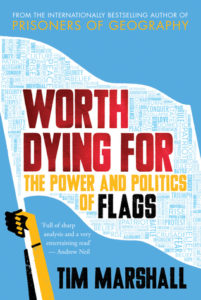Tr*mp Administration Being Shitty, As Per Usual
“But absent from the summit’s introductory statement were reporters from several news outlets, including the Associated Press, CNN, and E&E News. One reporter with the Associated Press was allegedly forcibly removed from the EPA headquarters after trying to enter to report on the summit.” EPA bans CNN, AP from covering summit on chemicals, ‘forcibly’ removes reporter (by Natasha Geiling for Think Progress)
“The Attorney General did not appear to be unveiling a new policy so much as amplifying a practice that has been adopted by the Trump Administration, which has been separating parents who are in immigration detention from their children. The Times reported in December that the federal government was considering a policy of separating families in order to discourage asylum seekers from entering. By that time, nonprofit groups were already raising the alarm about the practice, which they said had affected a number of families. In March, the American Civil Liberties Union filed a class-action lawsuit on behalf of the hundreds of families that had been separated when they entered the country with the intention of seeking asylum.” Taking Children from Their Parents is a Form of State Terror (by Masha Gessen for The New Yorker)
“Border authorities were accused of kicking a child in the ribs and forcing a 16-year-old girl to “spread her legs” for an aggressive body search. Other children accused officers of punching a child in the head three times, running over a 17-year-old boy and denying medical care to a pregnant teen, who later had a stillbirth.” Border Patrol Kicked, Punched, Migrant Children, Threatened Some with Sexual Abuse, ACLU Alleges (by Gillian Edevane for Newsweek)
“After I told the officers that I was here to seek asylum, they brought me into a room and asked me questions about why I had come to the United States. I told them of the danger that I had faced in Honduras — resulting from a military crackdown against protests following a contested presidential election. Each day people were disappearing; I fled just after the military tear-gassed our home.
I turned over documents that showed both my identity and my son’s, including my Honduran ID card, his birth certificate and his birth record from the hospital — and the latter two documents listed me as his mother. The officers kept all these documents, and they never asked any questions about whether he was my son. We spent that night in a facility — it would be the last night that my son would sleep in my arms for months.” At the border, my son was taken from me (by Mirian G for CNN)
“Instead, Manuel died a brutal death alone in a foreign land, a symbol of gang supremacy in a country plagued by violent drug cartels. It happened three weeks after U.S. Immigration and Customs Enforcement returned him to Mexico, a country he had left at age 3 when his parents brought him here without a visa.” Des Moines DREAMer dies within weeks after being sent back to Mexico’s violence (by Rekha Basu for Des Moines Register)
Failed Emergency Response
“When journalists were getting texts from people in the administration of Governor Ricardo Rosselló who said that the aftermath of the hurricane felt like a nuclear bomb had struck the island and that the situation was worse than what everyone thought, we knew the death toll wasn’t accurate. When funeral directors started telling people that they were burying way more bodies than usual, or when our family members told us about their neighbors dying in still-darkened rooms, or being buried outside their homes, we knew that the official death toll was much higher than the 64 people the government had eventually admitted to.” Puerto Ricans knew the official Hurricane Maria death toll was fake. We saw too many dead to believe it. (by Julio Ricardo Varela for NBC)
“We now have an answer to this question as the scope of devastation from Hurricane Maria becomes more clear. What we have learned is that there are life-and-death consequences to putting someone like Donald Trump in command of the federal government. The profound failure of leadership and management that Trump’s critics feared has actually happened, and we are just now learning the scale of that disaster.” Trump’s Human Toll (by Jamelle Bouie for Slate)
Racism
“A new study, however, suggests that the main threat to our democracy may not be the hardening of political ideology, but rather the hardening of one particular political ideology. Political scientists Steven V. Miller of Clemson and Nicholas T. Davis of Texas A&M have released a working paper titled “White Outgroup Intolerance and Declining Support for American Democracy.” Their study finds a correlation between white American’s intolerance, and support for authoritarian rule. In other words, when intolerant white people fear democracy may benefit marginalized people, they abandon their commitment to democracy.” The Trump effect: New study connects white American intolerance and support for authoritarianism (by Noah Berlatsky for NBC)
Criminal Punishment System
“To the assertion that the police simply need to be better trained, we must ask, better trained in what? The history of policing in the United States makes clear the police are in fact trained to discriminately execute, brutalize, and detain people, many of whom haven’t done anything against the law. Once you come to understand the institution’s ties to white supremacy, it becomes clear the system is toxic and cannot be fixed. So instead of spending more time trying to reform the institution, we should focus on delegitimizing police and ramping up well-organized approaches that benefit our communities.” The Case for Delegitimizing the Police (by William C. Anderson for Rewire)
“The officers instructed Barnett to exit the vehicle and to get on the ground. Once he was on the ground, they began to kick him, Barnett says. Barnett was transported to a local hospital for treatment of the wounds sustained during the stop. Once there, he says the officers began to beat him again. Barnett says he never fought back.” Two Mississippi Officers Have Been Fired After Being Accused Of Beating A Black Man Ordered To The Ground At Gunpoint (by Ashleigh Atwell for Blavity)
“Kazazi was carrying $58,100 in plainly labeled bank note bundles, along with receipts for his withdrawals and documentation showing that the funds were to be spent on a property in Tirana, Albania for his relatives. Cleveland TSA officials found the money and alerted Customs and Border Protection, who repeatedly questioned Kazazi, denying him an interpreter (his English is not fluent), strip searching him, and, eventually, confiscating his life’s savings under civil asset forfeiture rules. CBP has not charged Kazazi with any crimes or civil infractions, but under civil asset forfeiture rules, they don’t have to. It’s not Kazazi who’s under suspicion — it’s the money, and it is literally presumed guilty until proven innocent. Kazazi has to pay out of his own pocket for a lawyer to sue the government to defend his money and prove that it is not proceeds from a crime.” Customs stole a US citizen’s life savings when he boarded a domestic flight, now he’s suing to get it back (by Cory Doctorow for Boing Boing)
Sexism and Misogyny
“And, look, you don’t have to take my word for it. Maybe a bunch of men calling me a cunt doesn’t strike you as harassment. The thing is, many, many other female journalists have experienced the same pile-on from MuskBros every time they tweet criticism of him. Shannon Stirone, a freelance journalist who covers space for publications like Popular Science, Wired, and The Atlantic, told me: “Sadly there is a pattern to what happens after criticizing Elon. There is a reason I don’t do it very often because I don’t enjoy dealing with the backlash from the army of men who come out to defend him. I’ve gotten replies calling me a ‘stupid bitch’ and names along the same vein. They are so deeply angry and instead of using their words they lash out in the only way they seem to know how, which is to be abusive and demeaning.” What It’s Like When Elon Musk’s Twitter Mob Comes After You (by Erin Biba for the Daily Beast)
“There is no mention of alteration, so we are left with the manipulative subliminal messaging that someone else achieved the forever pre pubescent “fantasy” but we can’t. We have failed. Her breasts have been plumped, her legs lengthened, her skin smoothed. But all in secret. It’s so dangerous to put these images into the world of women who themselves often do not even meet the requirements, without the help of a computer, and say nothing of it. There should either be a detailed declaration in small print of the features altered, or we should see the original image and celebrate the humanity and reality of the subject and her photographer. Who frankly, may as well not bloody be there if a computer is doing all the work. Where is the dignity in it? For anyone involved?” Please can we bloody ban airbrushing? (by Jameela Jamil for her website)
“The Supreme Court on Monday dismissed a lower court’s decision that allowed an undocumented immigrant teenager to obtain an abortion over the protests of the Trump administration. The action, which came in an unsigned opinion without noted dissents, wipes out the lower court’s ruling as precedent.” Supreme Court throws out lower-court decision that allowed immigrant teen to obtain abortion (by Robert Barnes and Ann E. Marimow for Washington Post)
Homophobia
“Of course, it’s difficult to imagine Hinkle being blindsided by the national team’s embrace of LGBTQ Pride. U.S. Soccer — and women’s soccer in particular — have long fostered a close relationship with the LGBTQ community. Multiple members of the USWNT — including Megan Rapinoe, Ashlyn Harris, and retired star Abby Wambach — are members of the queer community, and, as writer Katelyn Best wrote in OutSports, “the women’s national team fanbase is among the gayest in sports.”” Soccer star confirms she quit national team because God didn’t want her to wear a LGBTQ Pride jersey (by Lindsay Gibb for Think Progress)
Disablism
“Every few months, another city, state, or country announces that it’s banning the use of plastic straws. These policies are meant to lead the way in removing plastics from the ocean, but, according to our best estimates, straws are not a major source of marine plastic pollution, and such laws are unlikely to have a noticeable affect on the levels of plastic entering our waters. The proposed bans do, however, have the unintended effect of making restaurants less accessible for many disabled people, while revealing the ableism embedded in far too much consumer-based environmentalism. There’s a better way. Instead of bans, we should shift all our use of disposable plastics from opt-out to opt-in. At the same time, let’s recognize the limits of focusing on consumer choice. Want to reduce plastics in the ocean? Make the producers pay for their waste.” Banning Straws Won’t Save the Oceans (by David M. Perry for Pacific Standard)
“Disabled people who shared their concerns, frustrations and criticisms of the straw ban on Twitter, many attempting to patiently explain why they are a necessity for some, have received hostility from many and support from few. The ‘just curious’ want to know why the alternatives aren’t good enough for disabled people and despite the abundance of articles, handy info graphics and tweets addressing that, seem incapable of finding the information out for themselves. Or perhaps it’s because those aren’t detailed enough and don’t explain exactly what is ‘wrong’ with the disabled person that prevents them from drinking without a straw.” Curiosity: Vancouver’s Straw Ban – Another Barrier and Another Excuse For Non-Disabled People to Shame, Marginalize, Interrogate and Demonstrate They Don’t Care About Discrimination Against Disabled People (by aneeone)
Gun Violence
“So far in 2018, 36 people have been killed by a school shooter. Ten of them died at Santa Fe, where 13 others were injured. Sarah is one of those 13, thanks to surgery that stemmed the bleeding from two major veins in her neck. Lopez’s life has predictably been turned upside down ever since. Her days are now spent at the hospital by Sarah’s bedside, organizing doctors and appointments. Then there are the stunningly surreal moments. Her marriage has broken down. She’s met the president of the United States. An NFL star dropped by to check on them.” Her Daughter Was Shot In The Santa Fe School Massacre. Here’s What It’s Like For One Mother. (by Amber Jamieson for BuzzFeed News)
Labor
“The court majority rejected an argument that federal labor law protects employees’ right to band together in legal action just like it protects their rights to organize unions. While the National Labor Relations Act grants collective bargaining rights, it “says nothing about how judges and arbitrators must try legal disputes that leave the workplace and enter the courtroom or arbitral forum,” wrote Justice Neil Gorsuch for the majority.” SCOTUS Just Screwed Workers. What Does That Mean for Washington State? (by Heidi Groover for The Stranger)
Poverty
“The Stranger reported in April that five years of eviction records show the Seattle Housing Authority sometimes evicts tenants over missed rent of less than $100. The agency’s practices face criticism from legal and tenant advocates, who say SHA is too eager to kick people out of housing and too willing to saddle them with extra debt. SHA defends its practices, saying it offers tenants payment plans and other assistance if they fall behind on the rent. The agency says evictions represent a small fraction of the total number of people it houses.” Advocates Call For Changes to Seattle Housing Authority Evictions (by Heidi Groover for The Stranger)
Just Ridiculously Awful Human Beings
“In a phone call, Larson confirmed that he created the now-defunct websites suiped.org and incelocalypse.today ― chat rooms that served as gathering places for pedophiles and violence-minded misogynists like himself. HuffPost contacted Larson after confirming that his campaign website shared an IP address with these forums, among others. His sites were terminated by their domain host on Tuesday. On the phone, he was open about his pedophilia and seemingly unfazed about his long odds of attaining government office.” Congressional Candidate In Virginia Admits He’s A Pedophile (by Jesselyn Cook and Andy Campbell for Huff Post)
Something Good
Abby Wambach is a national treasure, and she had some amazing things to say at the Barnard Commencement this year. Please read the whole thing. Abby Wambach, Remarks as Delivered






